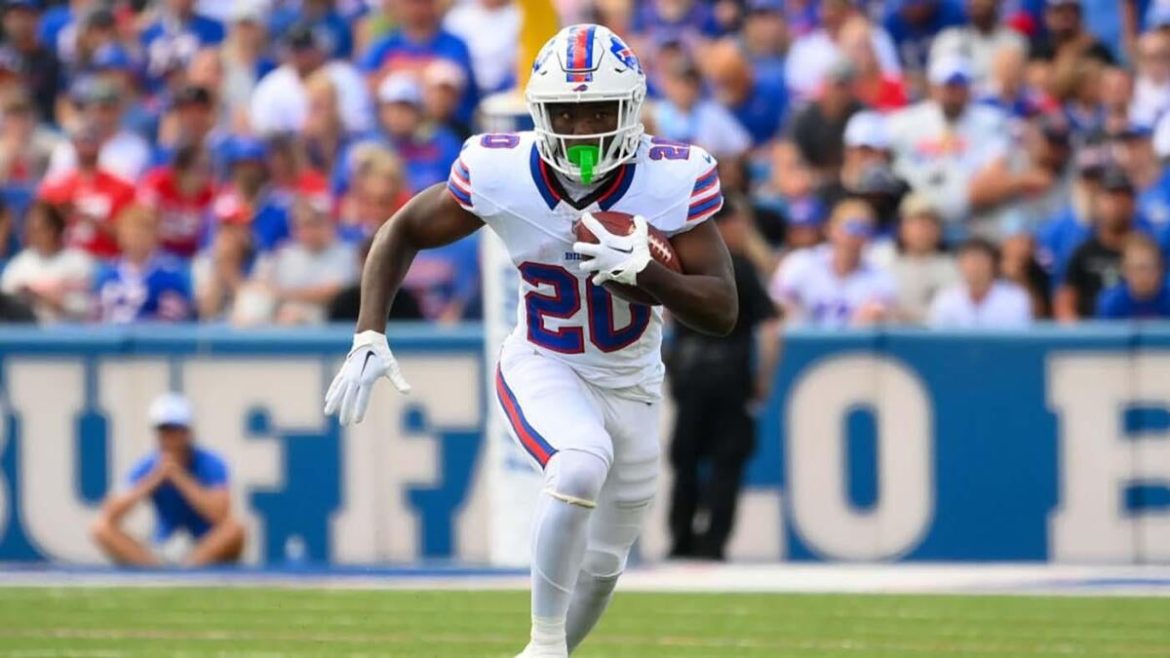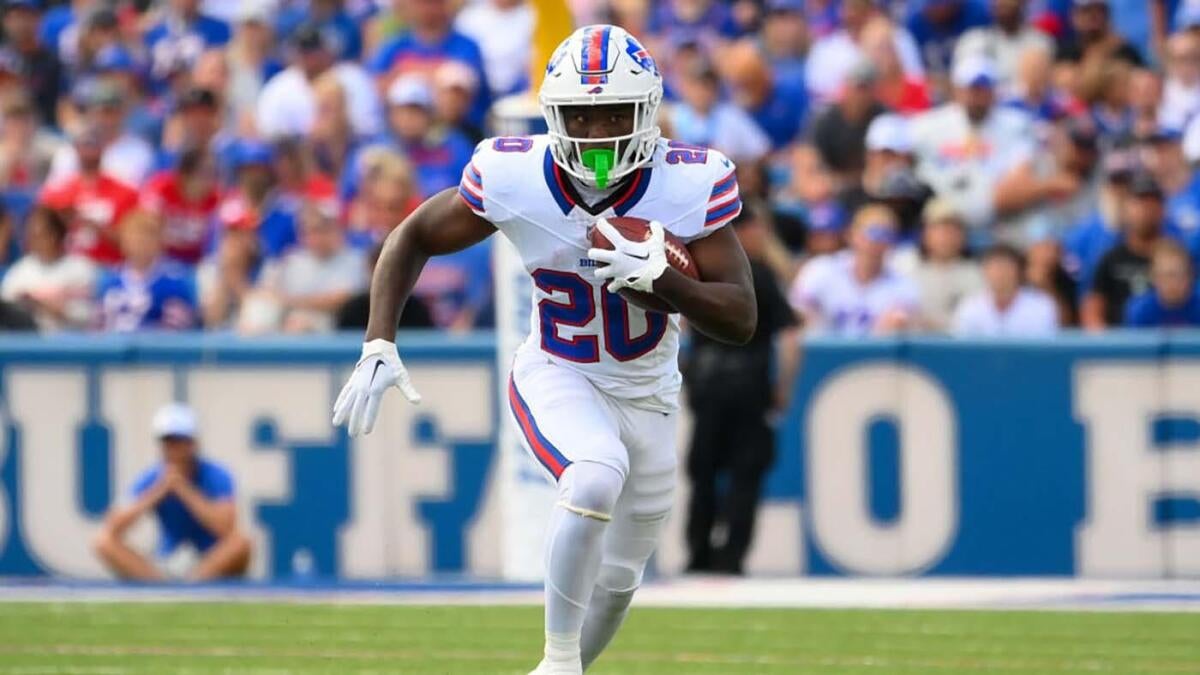Frank Gore Jr.’s “FGJ” Autograph: A Lively Story from the Buffalo Bills Locker Room
The recent buzz surrounding Frank Gore Jr., the undrafted rookie running back for the Buffalo Bills, has centered not just on his performance on the field but on something much lighter—his controversial and widely ridiculed autograph, marked simply as “FGJ.” The story behind this elementary-looking signature has become an amusing anecdote that has circulated among fans, collectors, and, most entertainingly, his own Bills teammates.
The Signature That Sparked a Locker Room Joke
Frank Gore Jr., son of NFL legend Frank Gore Sr., unexpectedly found himself in the spotlight for a reason other than his athletic exploits. Trading cards featuring Gore Jr.’s “FGJ” autograph began circulating, with collectors—and soon the Bills team—lampooning the simplicity and perceived childishness of the signature. Videos and social media posts capture teammates’ playful mockery, branding the autograph a “joke” and an “elementary school” example of penmanship.
Gore Jr. has publicly insisted that he didn’t actually sign some of the autographs shared online, denying ownership of at least one notorious card. However, teammates seem to find it hard to believe, translating the situation into ongoing locker room banter. The teasing has added a lighthearted dimension to the offseason and training camp, showing how even professional athletes aren’t immune to good-natured ribbing.
Behind the Ink: Why the Signature Matters
Autographs often symbolize a player’s brand, serving both as memorabilia for fans and a mark of authenticity. In the case of Frank Gore Jr., the autograph’s perceived lack of professional polish became a topic of conversation, especially given his lineage. His father, Frank Gore Sr., had a celebrated 15-year NFL career renowned for its productivity and consistency, making expectations particularly high for the rookie.
Collectors’ reactions to the “FGJ” autograph reflect their enthusiasm and scrutiny for rookie cards, especially for players linked to famous NFL families. A signature that appears rushed or minimalistic can become a point of contention or even humor, as seen in social media posts tagging it the “worst autograph ever.” This playful critique amplifies engagement while highlighting the rookie’s early steps into the world of professional sports marketing.
The Rookie’s Drive Amid the Autograph Antics
Despite the autograph antics, Frank Gore Jr. impresses on the field. Reports from the Bills’ preseason highlight his strong performances, including a notable 101-yard outing against the Carolina Panthers. His skills and determination have earned recognition, even though he faces the tough prospect of securing a spot on the Bills’ final roster.
Gore Jr. publicly shares his motivation to “prove people wrong,” signaling resilience in the face of scrutiny, whether from performance critics or playful teammates. This attitude aligns with his sporting pedigree but also showcases the authenticity of a young athlete forging his own path. The autograph saga, then, becomes less a liability and more a quirky chapter in his rookie narrative.
Broader Reflections on Athlete Branding and Fan Culture
This storyline sheds light on the intersection of athlete identity, branding, and fan culture in the digital age. A simple autograph transcends its original purpose, morphing into a symbol that fans, media, and teammates use to interact, tease, and connect with the player. Social media’s role is clearly pivotal—once photos of the “FGJ” signature spread online, the discourse gained momentum, demonstrating how quick and viral such moments can be.
Moreover, it reveals how athletes today must navigate multiple layers of public perception. Beyond their athletic performance, their personal brand, including their autographs, interviews, and social media presence, contributes to their public image. For a rookie like Gore Jr., even light-hearted locker room jokes become a form of narrative-building that can ultimately humanize and endear him to supporters.
Conclusion: A Signature That’s More than Meets the Eye
Frank Gore Jr.’s “FGJ” autograph saga is far from a mere curiosity about penmanship. It is a testament to the dynamic, sometimes humorous, relationship between athletes, their teammates, fans, and collectors. What began as a seemingly simple autograph evolved into a locker room joke and a viral talking point that revealed aspects of player branding, fan engagement, and the challenges facing rookies stepping into the NFL spotlight.
More importantly, this episode adds color and personality to Frank Gore Jr.’s early career. It underscores the human side of professional sports—where athletes are not just players but individuals capable of being both teased and celebrated. Whether Gore Jr. chooses to “fix” the autograph, as he has vowed, or lets it remain a charming quirk, the story enriches his identity in Buffalo and beyond, promising an intriguing journey ahead on and off the field.





